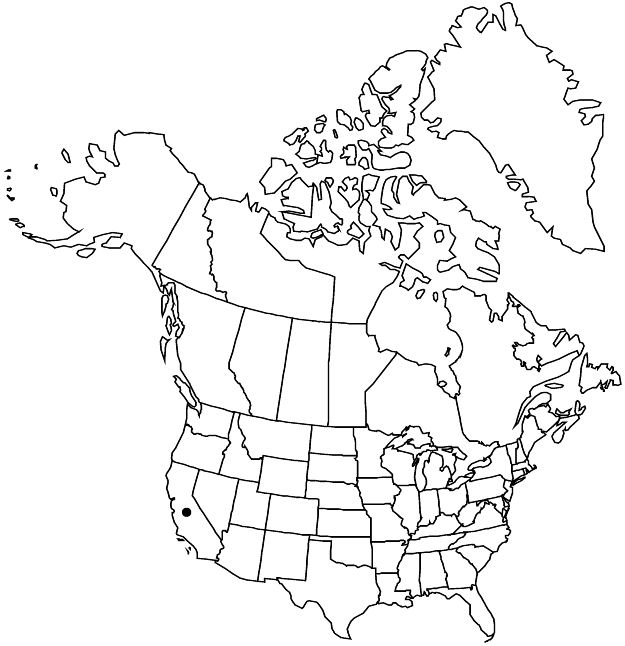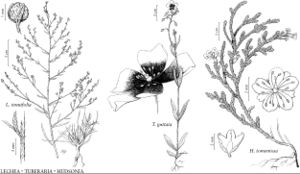Tuberaria guttata
Ann. Soc. Linn. Lyon, n.s. 16: 340. 1868.
Leaf blades elliptic to obovate (proximal) or lanceolate-linear to linear, 10–50(–75) × (2–)5–10(–18) mm, margins of distals sometimes revolute, surfaces hairy, hairs mixed: white and relatively long, white and in tufts, and red and relatively short. Pedicels 5–15 mm. Flowers: sepals 1–4 mm, villous; petals creamy yellow to yellow, usually brown to purple proximally, mostly obovate to rounded-cuneate, 4–10+ mm, apices truncate, erose to fimbrillate. Capsules 4–6 mm, villous. 2n = 36 (Europe).
Phenology: Flowering Apr–May.
Habitat: Disturbed sites, chaparral borders, flats, oak woodlands, along streams, vernal pools
Elevation: 80–200 m
Distribution

Introduced; Calif., Europe, n Africa.
Discussion
Nomenclatural conservation of Tuberaria against Xolantha Rafinesque rendered the name X. guttata (Linnaeus) Rafinesque incorrect for T. guttata.
Tuberaria guttata is known from the northern and central Sierra Nevada Foothills and eastern Sacramento Valley.
Selected References
None.
